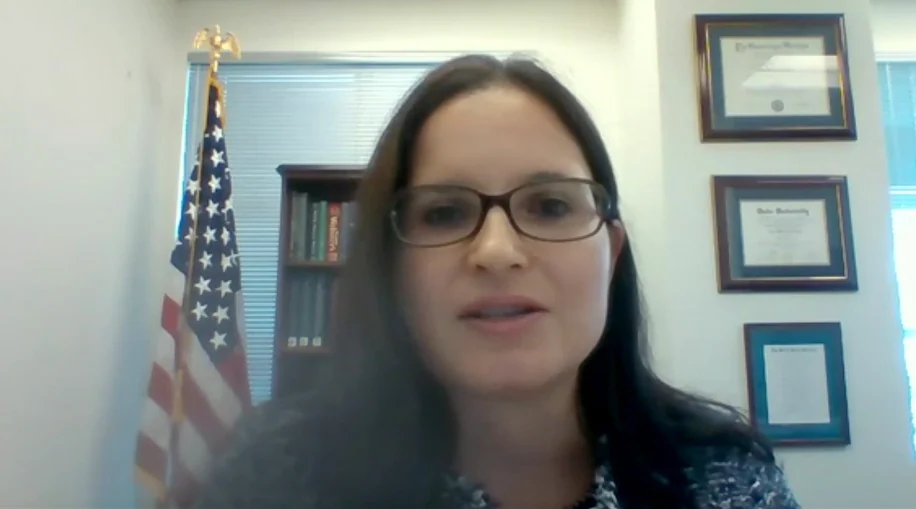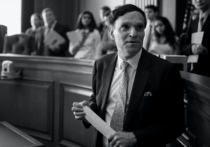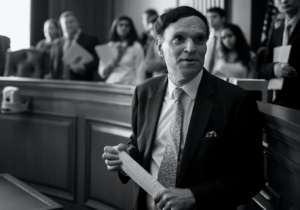This is a highly personal account of what happens after a social media crowd destroys a life. It includes talk of mental illness, severe pain, trauma, and suicide. Stop now if that’s not for you. Also, it’s long.
I was folding laundry with my partner one day when I looked up at him and said, “Do you think they’d be happy if I did kill myself?”
He looked at me, and took a long breath, and said, “No.”
“You’re right,” I said, “I know it. Nothing makes them happy.”
Taylor Lorenz, a staff writer at the New York Times told The Stranger: “In internet culture, being canceled is only good for your career. It usually results in going viral, which is default good in today’s broken world.”
I suppose it seems this way because you only see the people who survived it, who stayed in the public mind or their jobs. The rest of us, we cease, unpersoned and exiled. We are not in the observational data set, we are never spoken of when people talk about this mode of human life. To this day, as many articles as the New York Times has published about the phenomenon, never once has anyone mentioned my name.
The second time it happened, the bad time everyone remembers, I got a call in a movie theater. That was where I was when the internet wrecked my career, watching Black Panther, and my body still goes cold when I remember it. Katie Kingsbury called me, just before Killmonger died, just before he said “Bury me in the ocean with my ancestors who jumped from the ships, because they knew death was better than bondage” – I missed that part. As I was walking out, she asked me if I’d tweeted something, and I was confused by it. I said, “That doesn’t sound like me.” It turned out it wasn’t my tweet, it was a nine-year-old retweet of John Perry Barlow, an angry clap back at racists shortly after the first Obama election, and it contained the N word.
In the next hours, people would dig up tweets and display them out of context to paint me as an unrepentant racist and homophobe. I never had a chance, before I got home from the theater I was fired from my new job. The Times never asked me to explain the tweets. By the time the King of Wakanda was landing in Oakland, my life as I had know it was gone.
The only tweet anyone at the Times asked me about (after that initial call) was one where I was angry tweeting criticism of the Times’ coverage of the Michael Brown shooting. It was a tweet saying that I’d make a lot more money as a racist at the New York Time than I was making then, right after they’d published their “Michael Brown was no angel” article. I didn’t stop with the tweet. I wrote a satirical piece making fun of how the Times and other outlets covered Brown’s death and other police shootings, about how no one could be good enough to make the conventional media question the police, called Man Killed by Local Police in the Province of Judea.
I’ve spent a lot of my career weaving in elements of satirical bait-and-switch into my commentary and articles, and plenty of the bait without the switch was on display that day. I realized I couldn’t counter it, not all of it, and really not even a bit of it. No one was listening.
Online crowd stomping someone is like a sealioning of mythic proportions, where the crowd tempts you to think if you could just explain it would be OK, but it’s not true, it’s a lie that fucks with your head, a crowd screaming why are you hitting yourself while also telling you to kill yourself.
It’s not that the crowd used my weaknesses against me, it’s that they used my strengths. My pacifism, my work with weird and marginalized communities, my love of flawed people, my humor, my long thoughts and hopes about complicated moral topics, these were all used to reduce me to nazi sympathizer, a homophobe, a white supremacist.
So many of the things people brought up and threw at me weren’t my mistakes at all, but things I’m proud of, like trying to argue an anon out of making rape jokes at a feminist on Twitter.
And then my colleagues in American journalism did me dirty. They ran with the crowd, releasing fast articles without any more context than Twitter and Facebook, without talking to me or trying to understand what was happening. Not all, but most. Enough that I knew I wouldn’t get work again, that anyone who googled me would not speak to me again. And yes, they’ll complain I didn’t get back to them. But I was nine hours ahead of the west coast and overwhelmed. I had just been fired, I was preparing for spinal surgery, and I needed to sleep.Or at least, I needed to try to sleep.
The New York Times apologized for hiring me, but it would be years before anyone would apologize to me. It would be even more time before I found my anger. But it helped when I did.
You don’t know me, you assholes. You don’t even think that matters. All that matters is the last thing you saw, and feeling like you’re better than other people. You’re like the amnesiac goldfish of self-righteous hatred.
But then, I also know why they did it, I spent years studying and trying to understand exactly the forces that wrecked me that day. I had written about them, had spoken to the situations in which they arise, had suggested ways of making the internet better. Education, mostly, and creating the cultures you want to see on the net through active moderation, among other things. Maybe someday I’ll be able to write about it again.
That February 2018, I was in a level of pain hard to fit into words. I was struggling to type, I’d all but lost the use of my left hand and my right was starting to fail too. I had written about the pain the five months before, but it hadn’t improved since then. That’s what the spinal surgery I was preparing for was supposed to fix. This was the final cut on top many years of agony, physical and emotional. I explained everything as best I could in those days following my firing. I wrote about my philosophy, I wrote about what the Times and the crowd had done to me, the how and the why. Often I wrote by dictating notes into my phone, because typing was so painful and difficult. I hoped someone in journalism would retract their claims about me, but no one did. Regular people did, they still do. Sometimes out of nowhere someone on Twitter will say, I was in the mob, and I’m sorry. Not every article was a hit piece, but mostly they were, and none, not a single one that I could find, ever criticized my writing as racist or homophobic. Just me, on social media, in snippets no one wanted to understand.
Publications I was talking to replied that obviously they couldn’t work with me now. People who knew me apologized quietly, but with a few exceptions, they just felt like if they stood up for me they’d be destroyed by the mob too.
Friends, horrified by what happened to me, retreated from the internet. I found myself comforting them. I’d say the internet was not all bad, it was mostly wonderful, and that I would be OK. The first was true, the second, I still don’t know.
When the chips were down I found out I was mostly alone. It wasn’t the first time I felt that. It wasn’t the first time a crowd came for me, nearly drove me to the point of self-harm.
I’d felt it five years earlier, when the media and public went looking for a bad guy to blame for Aaron’s suicide. There were bad guys, MIT and the prosecution, US Attorneys Stephen Heymann and Carmin Ortiz, but they were safe behind the walls of institutional power. The crowd came for me for the same reason Heymann did: because I was powerless and easy to exploit and they wanted blood.
I was at my girlfriend’s flat in London the morning Aaron died. I woke up and opened my laptop to see mails and messages from everyone saying to call them, and that it was about Aaron. I said something like “No, no, what did you do, you didn’t do it no no no” and, of all things, pulled up Wikipedia. There, on the page, was Aaron’s end date. As I recall it, I just rocked and cried and said “no no no you didn’t do it” until I had to explain it to my girlfriend. She fed me and looked after me while I booked my way back to New York and then Chicago for the funeral. I went to a conference and did a presentation on Anonymous. Everyone told me I didn’t have to, including the organizers, but I wanted the distraction. I wanted to go through the motions of a normal life I already knew was never going to be normal again.
I met a filmmaker friend of mine at the conference. He hadn’t known Aaron, but now he was surrounded by people who had, and he wanted to understand more. He did a few interviews with me and other people, and said he thought this might be a short film. I looked him in the eye and said, “this is a feature length film.” He was thoughtful and silent. Later, with the camera rolling, he asked me why so many people cared so much about Aaron, and I said, “He was the internet’s own boy, and the old world killed him.”
That film, Internet’s Own Boy, would be shortlisted for the Oscars.
What I didn’t tell Brian that day was the complicated role I played in Aaron’s prosecution, or the complicated roles we played in each other’s lives. That would come out later, in the movie, and in articles, including my own. I would bring most of it out, but already under attacks from people who wanted someone to suffer for what had happened to Aaron. I’d been on and off in a romantic relationship with Aaron for years, and we had both struggled with depression in that time, even before he was arrested while riding my bike in Cambridge.
We’d gone through his arrest and investigation together. I was so angry at him, though you must understand, not for downloading journal articles. I was angry he hadn’t told me what he was doing. When I was being questioned by the Secret Service they couldn’t believe that I didn’t know, because we were so close. I wanted to pound on the table and explain that if I’d known they would never have. There wouldn’t be a laptop in Evidence, purchased with my credit card, there’d be a smoking crater where the JSTOR server used to be and not a shred of evidence that lead anywhere. Aaron wasn’t that kind of hacker. I, on the other hand, had done plenty of things no one ever caught me for.
My lawyers, who were terrible and sold me down the river, had advised me not to say that to the prosecution. They were probably right about that at least.
Aaron was so angry at me for meeting with them on my lawyers’ advice. He was right, but I didn’t know that. He was angry at me for betraying him, but not the way everyone thinks. I was the only one he told when he was suicidal, which was often during the investigation. One day I blurted it out to his lawyer on a speakerphone call. “Aaron is suicidal,” I told him, but he didn’t respond and Aaron hung up and yelled me that his lawyer wouldn’t care and it didn’t matter. I wouldn’t know that his lawyer had tried to act on that information until after Aaron died.
My life with Aaron started at the same time that my spinal problems started, and started with the loss of control of my hands and daily migraines. Just as my marriage collapsed, my body also started to collpase. In 2008 when the first MRI came back, the specialists explained that I could maybe control symptoms with physical therapy, Botox injections, and cortisone injected into my spinal neck, but that very little could be done for me, and when I had surgery, I’d lose mobility. That I would suffer a decline and my body would fail and that it would be terribly painful. “Maybe,” I was told. “Someone will invent a prosthetic.”
Ten years later, thousands of miles away in a country with more mercy for the ill, I was fired from my job, and waiting for that prosthetic to be inserted into three sections of my cervical spine, all while the crowd was trying to move into my mind.
Recovery was not easy. I had to cross Paris on the metro and take a train home, and it was a shockingly painful experience, even for someone as familiar with pain as I was. For the next weeks, I would patiently get up and reach up on the walls to feel them and push myself along. I’d shuffle my way along the edges of my room, trying to balance, trying to move. I didn’t have adequate pain medication, complained, and then I had too much. I became physically dependent on Fentanyl, and then wrote about the withdrawal.
I handed my Twitter account over to a group of friends for my recovery period, and they tweeted the details of my post-operative condition. “Every time I lose a follower, an angel gets its wings,” I joked with them. I was already retreating from the world, as I had when strangers had spent their time telling me I’d killed my beloved.
The weeks passed. I talked to a few publications, but no one wanted to be seen with me. I felt like an unperson. My throat would tighten until it felt like I would choke, just sitting there. I was fighting to get my body back, and fighting the memories of being a pariah for all of my childhood. It had all welled up and poured over my psyche after the Times, along with the inadequacy I felt at not being able to save Aaron. I was barely keeping my grip on reality. I still had support on Patreon, which was both shocking and intimidating. I felt like I couldn’t produce, I felt broken down completely, and unsure how to rebuild myself, physically, mentally, or emotionally.
And then, a ray of hope. Out of the blue, a publication I dearly love offered me a column. It sounded like it would be coming home, and I said yes. They told me whom I would talk to next in the process to brought on board, and then there were no more mails. They ghosted me. I wrote and wrote asking for the next steps, and they simply never wrote back. I never learned why.
Some little thing in me snapped after that. It was too much. I fought back thoughts of suicide on a daily basis. I talked them through with friends and my partner, and defanged them, but always temporarily.
I was fighting my worst depression in years, and I was using everything I knew to fight it. I was exercising and doing mental work and trying to manage my sleep, but my PTSD was also out of control. I was dreaming every night of fights with Aaron, Occupy camp evictions, seeing my dead father’s body, being visited by all the people who had died, and sometimes just straight up monsters chasing and killing my people, both alive and dead. It had progressed to hallucinations that lasted up to a few minutes after I’d wake up. I’d bat at the air, fighting demons my mind dreamt of, until I realized what was happening, and stopped. I apologized when I woke up my partner.
When I’d dealt with every self-harming thought as well as I could cognitively, they retreated into urges, a feeling like my body would just act on its own, however I might fight it. I became scared to walk across bridges. I tried to not be alone too much. I hated feeling like a burden, I hated feeling like I couldn’t do or be anything helpful or productive for the world, but I had hung on, until the day came when I couldn’t.
I didn’t trust myself anymore. I walked over to the bus stop, and caught the last bus of the night that would take me to the Emergency Room. When they asked me why I had come, I said I was afraid I was going to hurt myself.
They asked me to sit down and before long had a staff psychiatrist talk to me. He spoke some English, but not well. He asked what had happened, and why I was feeling so bad, and I started to tell him about Twitter and the New York Times. I stopped, realizing that he didn’t understand much about this crazy story and I was going to get the wrong diagnosis if I wasn’t careful. I called my partner, and put him on the phone to explain in French.
I watched the psychiatrist. He was an older man with a trace of corrected cleft palate. This comforted me in ways hard to explain. He’d known pain, and flaws, and problems with society. He couldn’t really understand me or my world, but I knew he could understand the pain of being different, of people being thoughtless. He nodded with the phone to his ear and ask questions, and eventually handed my phone back to me. He suggested I take a bed in the hospital for the night.
My trust was not misplaced. Over the next few days we never had much of a real conversation, but he listened and tried to help.
I was admitted to the psych ward that night. It was not a great experience for me, but it was safe. And more than anything I felt like I’d pulled the emergency cord on my life. I’d stopped the whole train, just to say, I need help, I need something to change. I’m not going to survive this without help. I spent two days there, stabilizing and trying to figure out a long terms plan for care. It didn’t work out. Luxembourg, which had so wonderfully cared for me when it came to my spine, has next to nothing in terms of mental health care options. The only care they would pay for outside of the country was inpatient. A former NHS psychologist who had recently moved to Luxembourg was found to talked to me a few hours while I was in the ward, but there was no option to see her later.
Still, the few hours did help.
I went home two days later, in the strange and liminal mood that comes after you’ve done something that changes everything. Everything was a different color. I wasn’t better, but I had nothing on my to do list but survive.
I went back to America, where I knew I could see providers, but for a lot of money. I passed the hat — and old school gofundme — to pay for a couple months of therapy and a visit with a creative, young, and damn expensive psychiatrist. I walked into his office with a twenty-year history of drugs which either had unlivable side effects or hadn’t worked on my depression and PTSD. He took it, read through it, and said “You’ve taken all the drugs.”
I talked about the night terrors, which I never had before. He prescribed me a hypertension drug, which somehow someone realized controls PTSD related night terrors in overly high doses. I had to ramp up over six weeks, but I did. The night terrors aren’t completely gone, but they’re much reduced, and the hallucinations have almost disappeared. It was the second time a drug had actually helped me mentally, the first being taking Trazodone to help me with lifelong insomnia.
But controlling the wider PTSD and depression symptoms wasn’t working. I sought out more group therapy as well as one-on-one, and started a short term treatment with ketamine in hopes that it would control my depression. I tried everything I could at the beginning of 2019.
It didn’t work. It wasn’t a total failure, my sleeping was better, but I was still struggling to live. I felt like I gave it all I could.
When I came back home everything was quiet, around me, and in my head. I felt allowed to do anything I wanted to get better, what was left? Who could say anything to me? I figured if I wanted to run off to a forest and drop acid to get better, so be it, I was going to do whatever I wanted. I had tried everything. I read the studies, saw so many clinicians, read books, tried apps, even taught myself a fair bit of neurology. I was allowed whatever I wanted at this point. I was allowed to call myself treatment resistant.
I didn’t run off to the forest and drop acid, that was mostly theoretical, I don’t even know how to buy acid. But I felt better thinking I could if I wanted to.
I started a new drug prescribed to me by a pschiatrist, new enough that it had to be brought in from France and wasn’t cover by my national insurance. Maybe it helped, I don’t know. It gave me migraines again, which we tried to control through more Botox and other drugs including heavy duty NSAIDs and triptans.
I let the days go by, mostly. I cooked and helped people where I could, I wrote when I was able. I felt time slipping away with panic again, just as I had when my hands stopped worked and every day was full of physical pain. There were ups and downs, but for a while, it seemed to be getting better. My doctor thought it was the new drug, I was not so sure. Trying to understand this stuff makes the three body problem look like child’s play. Controlling one variable is a fun game researchers play, while clinicians laugh at their theories. In the real world, you still have to throw things at the wall, and hope.
I started declining again. I stopped writing, and hated myself for it. I began reaching for anything — exercising, meditation, but everything just got worse. I went back on sleep medication, and upped my antidepressant, figuring I’ll just live with the migraines. I went looking for more ideas, more research, more anecdotes. The familiar gift of desperation was back, accompanied by the fireworks that heralded 2020.
I am out here on the peculiar edge of human experience: the hate of the crowd, in a peculiar era where the crowd can kill you and you still find yourself untouched, alive, and ill-equipped for this life.
Looking for ideas in one thing after another, I found research about holocaust survivors who, having told their story, started doing better. Their physical and mental health improved after they stopped holding in the stories of what happened and how awful it was. I looked at my blown deadlines, and my loving partner, my hesitant career, and all these secrets I was keeping about how much it hurt to get hated and driven out of my career, and I thought, well, what the hell do I have to lose? So here I am, saying what it’s like to try to rebuild a life after a cancelling, and so far, largely failing.
I’ve been harassed on the internet most of my life, but it has tried to kill me twice, a kind of civic death absent stockades or end dates. It nearly succeeded both times. Some days I’m still shocked by the absurdity of still being alive.
The first piece I was going to write for the Times was about how human proclivities and network math work together to sort us into strange crowds, and how hard they can be to escape from. It’s still here, on this hard drive, almost finished for years. I look at it occasionally, but I can’t find the strength in my fingers and mind to tie up its loose ends. I am one of those loose ends now. Every day is hard.
Thanks to my Patrons on Patreon, who amazingly keep trying with me,
even though I struggle and complain so much.








